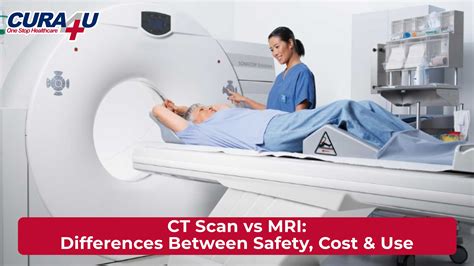Introduction

CT scans, also known as computerized tomography scans, are a valuable medical imaging technology used to obtain detailed cross-sectional images of the body’s internal structures. However, the cost of a CT scan can vary significantly depending on a variety of factors. This article will delve into the intricacies of CT scan pricing, exploring the key factors that influence the expense and providing insights into potential cost-saving measures.
Understanding the Factors that Affect the Cost of a CT Scan
The cost of a CT scan can be influenced by numerous elements, including:
1. Facility Type
The type of facility where the CT scan is performed can impact the price. Hospital-based CT scans tend to be more expensive than those conducted at standalone imaging centers or urgent care clinics.
2. Geographical Location
The cost of a CT scan can also vary by geographical region. Metropolitan areas often have higher prices compared to rural locations.
3. Type of CT Scan
Different types of CT scans, such as chest, abdominal, or head scans, require varying levels of complexity and resources, which can affect the cost.
4. Contrast Dye Usage
In some cases, a contrast dye is injected into the patient’s bloodstream to enhance the visibility of certain structures. The use of contrast dye typically adds to the overall cost of the scan.
5. Insurance Coverage
Insurance coverage can significantly impact the cost of a CT scan. The amount of coverage, deductibles, and co-pays vary among different insurance plans.
Calculating the Average Cost of a CT Scan
According to the American College of Radiology (ACR), the average cost of a CT scan nationwide ranges between $300 and $1,200. However, the actual price can differ greatly depending on the factors discussed above.
The following table provides a general overview of the average costs for different types of CT scans:
| Type of CT Scan | Average Cost |
|---|---|
| Head CT Scan | $300 – $600 |
| Chest CT Scan | $400 – $800 |
| Abdominal CT Scan | $600 – $1,200 |
| Full-Body CT Scan | $1,000 – $2,500 |
Potential Cost-Saving Measures
For those concerned about the cost of a CT scan, there are several potential cost-saving measures to consider:
1. Shop Around
Comparing prices from different facilities can help you find the most affordable option.
2. Negotiate with the Facility
In some cases, it may be possible to negotiate a reduced price with the medical facility performing the CT scan.
3. Use Health Savings Accounts (HSAs) or Flexible Spending Accounts (FSAs)
These accounts allow you to set aside pre-tax dollars to cover healthcare expenses, including CT scans.
4. Consider Payment Plans
Some medical facilities offer payment plans that can break down the cost of the CT scan into smaller, more manageable monthly payments.
Innovative Applications of CT Scans
Beyond their diagnostic capabilities, CT scans have also found applications in various fields, including:
1. Virtual Reality (VR) Planning
CT scans can provide detailed 3D images used to create VR environments for surgical planning and patient education.
2. Forensic Science
CT scans can assist in crime scene investigations and autopsies, providing valuable anatomical information.
3. Cultural Heritage Preservation
CT scans are employed to examine artifacts and antiquities, allowing researchers to study their internal structures and preserve their historical significance.
Conclusion
The cost of a CT scan can vary significantly, influenced by multiple factors. By understanding these factors and exploring potential cost-saving measures, patients can make informed decisions about their healthcare expenses. As technology continues to advance, CT scans will continue to play a crucial role in medical diagnosis and treatment, while also finding innovative applications in diverse fields.
